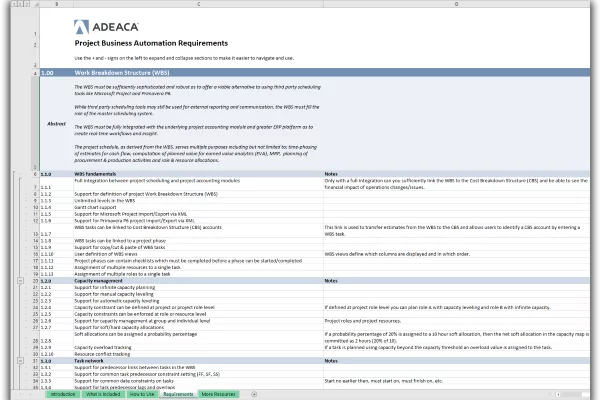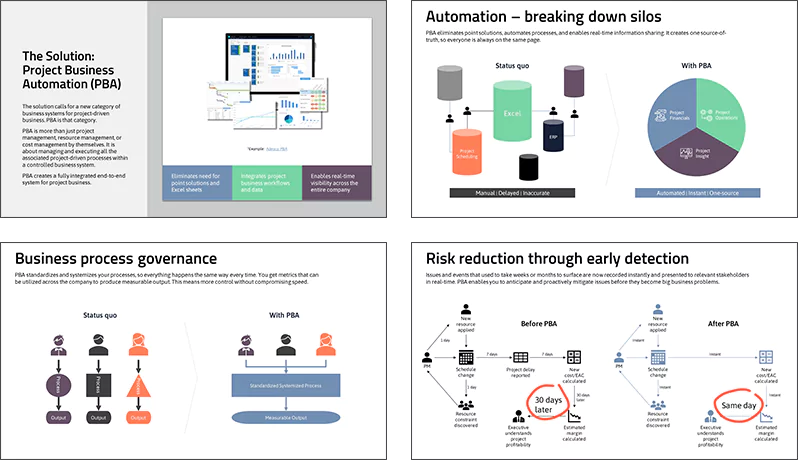A Project Management System is a technology solution that manages the processes and data for completing complex projects. Unlike project management software, a system incorporates more than just tools for managing work in projects. It integrates various project management needs into a unified platform, providing a comprehensive approach. Therefore, the best project management system is the one that is the most comprehensive in meeting project management needs.
Top 5 Project Management Systems for 2024
Project Management Systems can incorporate many different features. However, the rankings below are indications of which systems are the most comprehensive in nature and the best for larger enterprises.
5 – Smartsheet
Smartsheet is like spreadsheets on steroids. Since Excel is the most used project management tool out there, Smartsheet seems very intuitive. Smartsheet’s spreadsheet-like interface lets you manage projects however you want, with some good task automations and integrations to.
However, what is has in flexibility it lacks in governance. It is difficult to control processes and data like enterprises require. It is not really a system, and therefore comes in last on our list.
4 – Monday.com
Monday.com is a rising star in the project management world, known for its intuitive interface and wide range of simple features. It is a very flexible tool with capabilities like task management, time tracking, team communication, and file sharing.
However, what Monday.com provides in breadth and simplicity, it lacks in depth of capabilities. It works best for simple projects and teams that need a wide range of tools to cover agile projects. However, for complex projects, such as engineering or ETO manufacturing, Monday.com does not provide the needed financial or operational rigor required.
3 – Wrike
Wrike is another feature-rich option, particularly popular for its reporting and analytics. Wrike excels at giving you good visibility into your project’s progress and resource allocation.
However, it likely won’t meet the needs of larger enterprises with complex projects who need to control processes and data more tightly and who need to manage many different facets of projects. While good, especially for smaller professional services projects, it likely won’t hold up in a project-driven enterprise.
2 – Planisware
Planisware is particularly known for its focus on enterprise-level project portfolio management (PPM). Therefore, it does provide a comprehensive suite of tools for strategic decision making with strong reporting and analytics. It also offers features for managing individual projects and resource allocation.
However, its focus is on aligning projects with strategic objectives and optimizing portfolio performance for large organizations and therefore it is not the best project management system due to its lack of project execution tools.
1 – Adeaca Project Business Automation
Adeaca PBA is clearly the most comprehensive solution on the market and therefore comes at the top of our best of project management systems list. PBA isn’t just a project management tool, it’s an entire business system built for project success. It covers everything from project inception and governance to financials, cost management, scheduling, and operations.
From starting a project to executing and closing the project, PBA covers the entire project lifecycle in one system. By covering all processes and data around projects, PBA is able to provide project controls, data transparency, and real-time insight that no other solution can. It is truly a complete business system for project-driven organizations.
Project Business Automation (PBA) is a comprehensive business system for project-driven organizations. Learn more: Download the PBA Quick Guide now.
Project Management vs Project Business Systems
While Project Management Systems are better than disparate project management tools, Project Business Systems take an even broader approach. They integrate business and project aspects seamlessly, aligning project activities with overall business needs, including revenue, profitability, risk, resource capacity and more. Project Business Systems, such as Project Business Automation, not only manage projects efficiently but also govern project processes end-to-end throughout the project lifecycle, providing transparency and control across the project business to executives.













